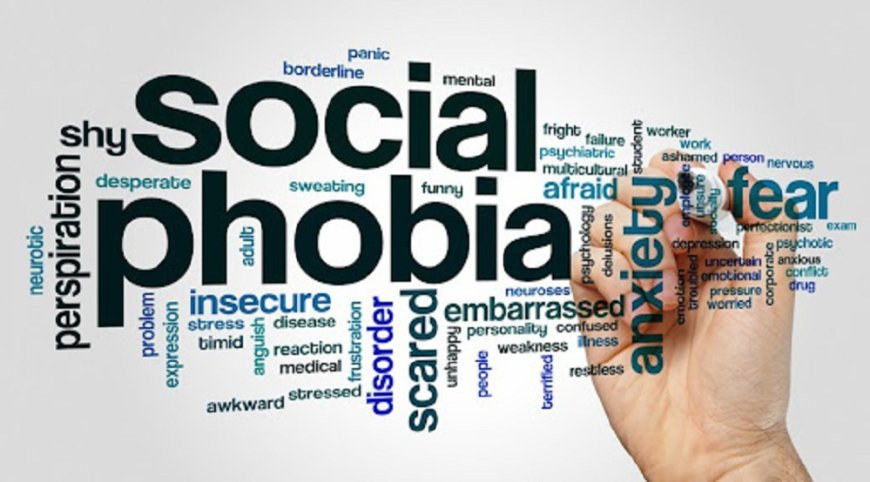Social phobia is not introversion. How to recognize it and where to seek help?
Social phobia is one of the anxiety disorders. We explain what symptoms it causes, where it comes from and where to seek help.

Social phobia is one of the anxiety disorders. We explain what symptoms it causes, where it comes from and where to seek help.
Man is a social being who needs contacts with other people to function properly. Building relationships is one of the deepest and often most important human needs.
Social phobia makes it difficult or even impossible to live in society in a way that allows you to build relationships and enjoy everyday life, e.g. going to work, socializing and mundane everyday activities, including purchases. Phobias and the associated mental and somatic symptoms are a reason for patients with shame and hide their ailments, which further aggravates the problem.
Social phobia is one type of phobia. Acco What is social phobia? rding to the current ICD 10 classification, social phobia is classified as a neurotic anxiety disorder.
In the case of social phobia, we deal with an irrational fear that accompanies patients in various social situations. The attacks of anxiety and anxiety, as well as the somatic symptoms typical of anxiety disorders, appear in the case of contact with strangers outside the comfort zone, i.e. the area where the patient feels confident and safe. It can be, for example, a house or flat and the immediate vicinity of the place of residence.
Social phobia should not be confused with shyness or introversion, which are not a disorder but a personality trait. To put it simply, a social phobia is the fear of leaving your own comfort zone and being in a group of strangers who may assess the patient or otherwise affect the appearance of anxiety and related somatic symptoms.
Social phobia - causes
Social phobia can have various causes. It often originates from anxiety neurosis and is the result of the so-called fear of the anxiety experienced by people experiencing, inter alia, panic attacks and other symptoms of neurotic disorders. Social phobia can run in families. Some specialists point to overprotection and an upbringing model that makes it impossible for a child to cope with problems on their own as the cause of social phobia.
However, social phobia is much more often the result of, inter alia, artical-traumatic stress and the resulting dramatic experiences we experienced in public space, social exclusion, traumatic childhood events (persecution by peers, rejection, lack of acceptance of appearance or way of being), as well as changes in our nervous system under the influence of chronic stress, and not coping with, for example, life situations.
Must Read: Mental disorders and hair loss “ a non-obvious but real link
Social phobia - symptoms
Social p can manifest itself in different ways, and the ailments associated with it are not always specific. The typical symptoms of this disorder include, among others a feeling of anxiety before leaving the house, accompanied by sudden somatic symptoms.
The feeling of anxiety and somatic symptoms can also appear as a result of thinking about leaving our safe comfort zone. This is a defensive effect that is supposed to keep us from confronting the "threat". Social stress can be caused by, among others abdominal pain, urge to urinate and stool, unpleasant tingling and numbness in the limbs, rapid heartbeat, dizziness, shortness of breath, trembling hands, flushing of the face.
Sometimes the anxiety is so strong that it causes discomfort that cannot be controlled, leading to a full-blown panic attack. Importantly, the symptoms do not appear or are much milder in a familiar environment and among people who fully accept the sick person, and they pass quickly when we return to the perceived safe place.
The feelings accompanying the sick can be compared to the increased stress before important events in chewing, e.g. an exam, wedding, public performance, but they are not only a temporary episode of fear and uncertainty. The anxiety associated with social phobia often leads to a complete resignation from normal life, therefore a medical consultation is necessary in order to rule out the underlying disease, and to start treatment.
How to cure social anxiety disorder?
Treatment of social phobia and other anxiety-related mental disorders includes psychotherapy as well as taking medications prescribed by a psychiatrist. Extremely important in this case is the selection of appropriate pharmaceuticals and the choice of therapy, thanks to which the sick person can learn the source of fear and "tame" it, regaining the joy of life and the pleasure associated with normal functioning in society.
